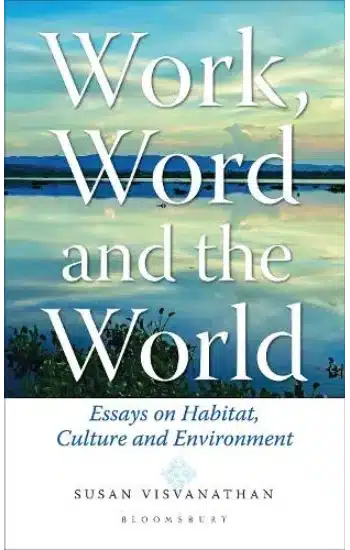
Save: 25%

Save: 25%
Work, Word and the World
Publisher:
| Author:
| Language:
| Format:
Publisher:
Author:
Language:
Format:
₹1,299 ₹974
Save: 25%
In stock
Ships within:
In stock
| Book Type |
|---|
ISBN:
Page Extent:
Word, Work and the World begins with the assumption that people are interested in the world around them. The book is written with the intent of drawing in lay and specialised readers into the interdisciplinary world of Sociology/Social Anthropology. The methods of both, since the 1960s, has been seen as combined for the reasons that the dichotomy of tribal/ peasant in relation to urban conglomerations is thought to be immensely interesting to the reading public. Migration for work is so significant, whether within the country or outside, that the dilemmas and concerns of the diaspora are always interesting data. Put simply, the book tries to bring forward the living practices of communities which are interlocked in time and space, where work and their cultures become intermeshed in different ways. Of course cyberspace becomes the common denominator in understanding that people are interested in one another, families and friends become interactive over spans of time which allow a certain intimacy of acknowledgement. Economic practices are also embedded in the hinterland of communication. As the world becomes increasingly vulnerable to climate change, organic farming, the search for water, the protection of lands and people from floods, are all real indexes of how urgent the task of recording people’s life worlds has become. Narrative production, and its interpretation draws us into the complexities of the ethnographic present, which as a type of documentation provides resource materials to historians. Since the world is now so encompassable, the book explores how human being remember the past, while creating new niches for the survival of their families and communities. Hybridization of cultures also involves familiarity with world literature, because people enjoy the expanse of imagination into which they are released by reading time honoured texts, whether of the ancient past, or of contemporary time. The time of legend, of fable, of coercive patterns of existence arising out of natural or political calamities, makes them ever more respectful of traditions and the hope for survival. Out of war and loss arise both science and poetry, not necessarily opposed to one another.
This book tries to bring to the reader the pleasures of many cultures in conversation with one another, where dissonances may be accommodated.
Word, Work and the World begins with the assumption that people are interested in the world around them. The book is written with the intent of drawing in lay and specialised readers into the interdisciplinary world of Sociology/Social Anthropology. The methods of both, since the 1960s, has been seen as combined for the reasons that the dichotomy of tribal/ peasant in relation to urban conglomerations is thought to be immensely interesting to the reading public. Migration for work is so significant, whether within the country or outside, that the dilemmas and concerns of the diaspora are always interesting data. Put simply, the book tries to bring forward the living practices of communities which are interlocked in time and space, where work and their cultures become intermeshed in different ways. Of course cyberspace becomes the common denominator in understanding that people are interested in one another, families and friends become interactive over spans of time which allow a certain intimacy of acknowledgement. Economic practices are also embedded in the hinterland of communication. As the world becomes increasingly vulnerable to climate change, organic farming, the search for water, the protection of lands and people from floods, are all real indexes of how urgent the task of recording people’s life worlds has become. Narrative production, and its interpretation draws us into the complexities of the ethnographic present, which as a type of documentation provides resource materials to historians. Since the world is now so encompassable, the book explores how human being remember the past, while creating new niches for the survival of their families and communities. Hybridization of cultures also involves familiarity with world literature, because people enjoy the expanse of imagination into which they are released by reading time honoured texts, whether of the ancient past, or of contemporary time. The time of legend, of fable, of coercive patterns of existence arising out of natural or political calamities, makes them ever more respectful of traditions and the hope for survival. Out of war and loss arise both science and poetry, not necessarily opposed to one another.
This book tries to bring to the reader the pleasures of many cultures in conversation with one another, where dissonances may be accommodated.
About Author
Reviews
There are no reviews yet.



Reviews
There are no reviews yet.